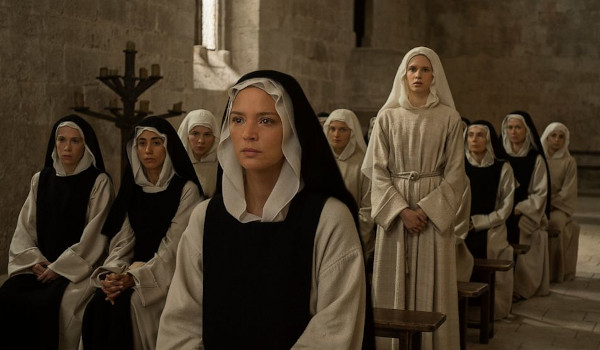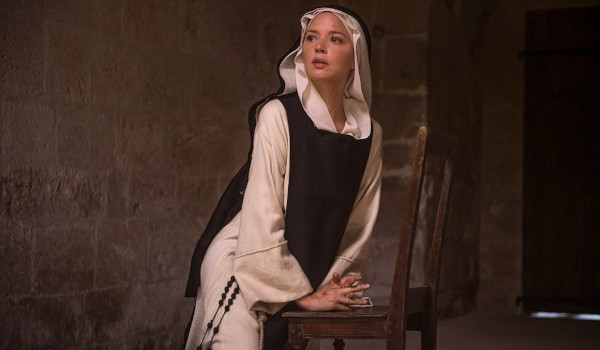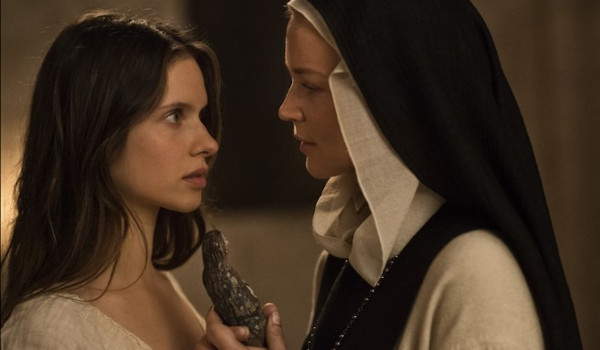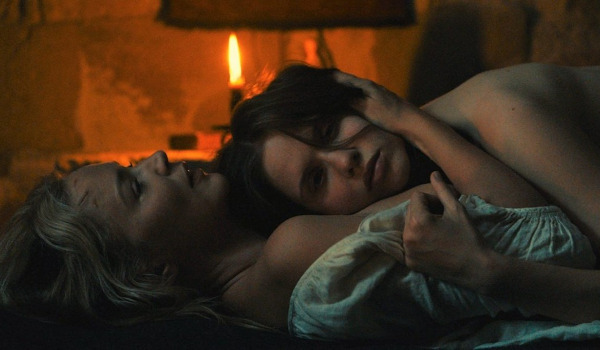- Title: Benedetta
- IMDb: link

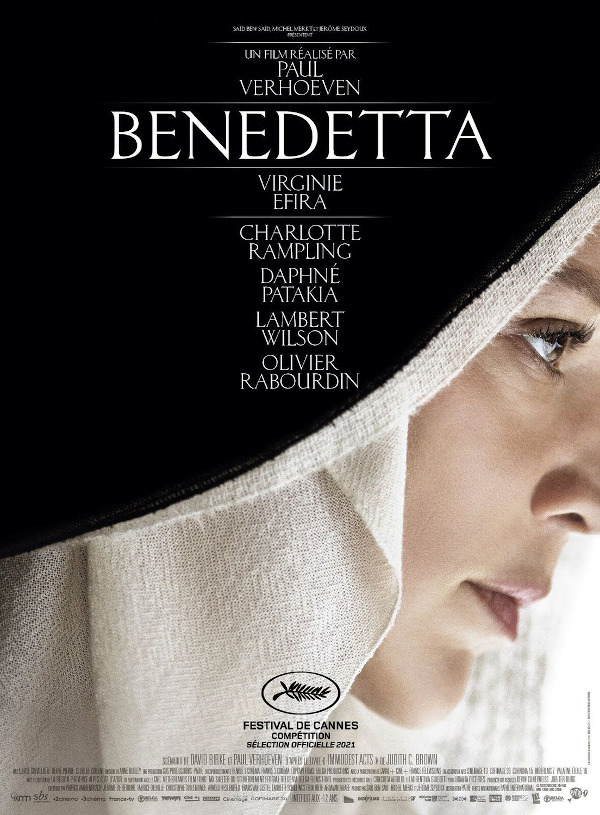 Inspired by the life of 17th Century nun Benedetta Carlini, Virginie Efira stars in the title role as a nun with visions and dreams of Jesus (Jonathan Couzinié). After the arrival of a young woman named Bartolomea (Daphne Patakia), to whom she has an obvious attraction, Benedetta begins having fevered dreams and one day appears with stigmata allowing for her advancement over the current abbess (Charlotte Rampling). This immediately causes turmoil within the covenant which is only furthered by charges against both Benedetta and Bartolomea for the carnal nature of their relationship.
Inspired by the life of 17th Century nun Benedetta Carlini, Virginie Efira stars in the title role as a nun with visions and dreams of Jesus (Jonathan Couzinié). After the arrival of a young woman named Bartolomea (Daphne Patakia), to whom she has an obvious attraction, Benedetta begins having fevered dreams and one day appears with stigmata allowing for her advancement over the current abbess (Charlotte Rampling). This immediately causes turmoil within the covenant which is only furthered by charges against both Benedetta and Bartolomea for the carnal nature of their relationship.
With Benedetta, writer/director Paul Verhoeven mixes eroticism and religion to a dizzying extent. The framing of the story, however, is inconsistent as Verhoeven can never quite decide whether Benedetta is at the mercy of her visions, which appears to be the case in the first hour, or only uses the illusion of them to manipulate events and further her own agenda, as she does in the later-half of the movie. Is she mad? A manipulative bitch? Touched by god or the devil? Or something in-between?
Efira and Patakia provide some steamy scenes on-screen, and cinematographer Jeanne Lapoirie has no shortage of scenes in which to explore the actresses’ nude bodies. However, while the film delights in showing us the forbidden sexual nature of their relationship, it’s somewhat inconclusive about what the two women may have meant to each other. By the script choosing not to make any conclusions about Benedetta’s motives, it leaves a large question mark over the pair’s relationship. If you can’t decide whether or not she was manipulating everyone around her, how can you decide who Benedetta may have had genuine affection for? There’s obviously attraction and lust between the pair, but is it love? Is Benedetta even capable of love?
There’s enough here to titillate and keep your interest for most of its running time, even if it does create some unintentionally hilarious moments, but I think the director has larger ambitions for the project. Also troubling, is the eroticism and increasingly melodramatic over-the-top sequences continuously undercut the drama of film making it impossible to sell the film’s attempts at a more serious tone when the script moves towards Benedetta’s trial, the spread of plague across the region, and the fallout from those events. The film ends with a note that Benedetta was denied martyrdom. If those of her time were as unsure about her true motives as David Birke and Verhoeven’s script appears to be, I can’t say I’m surprised.

